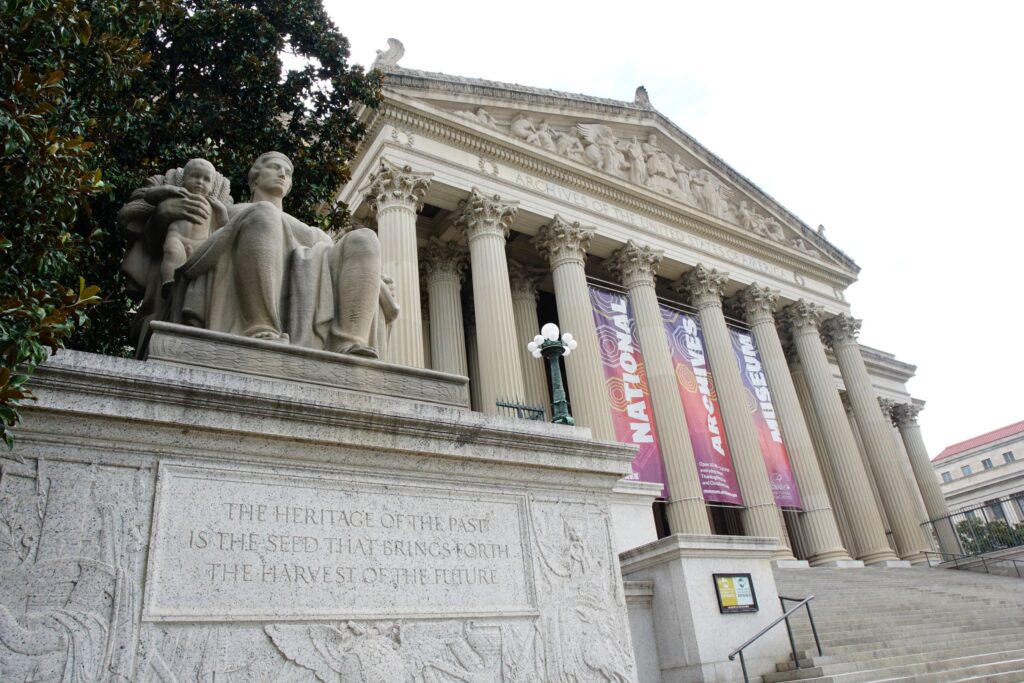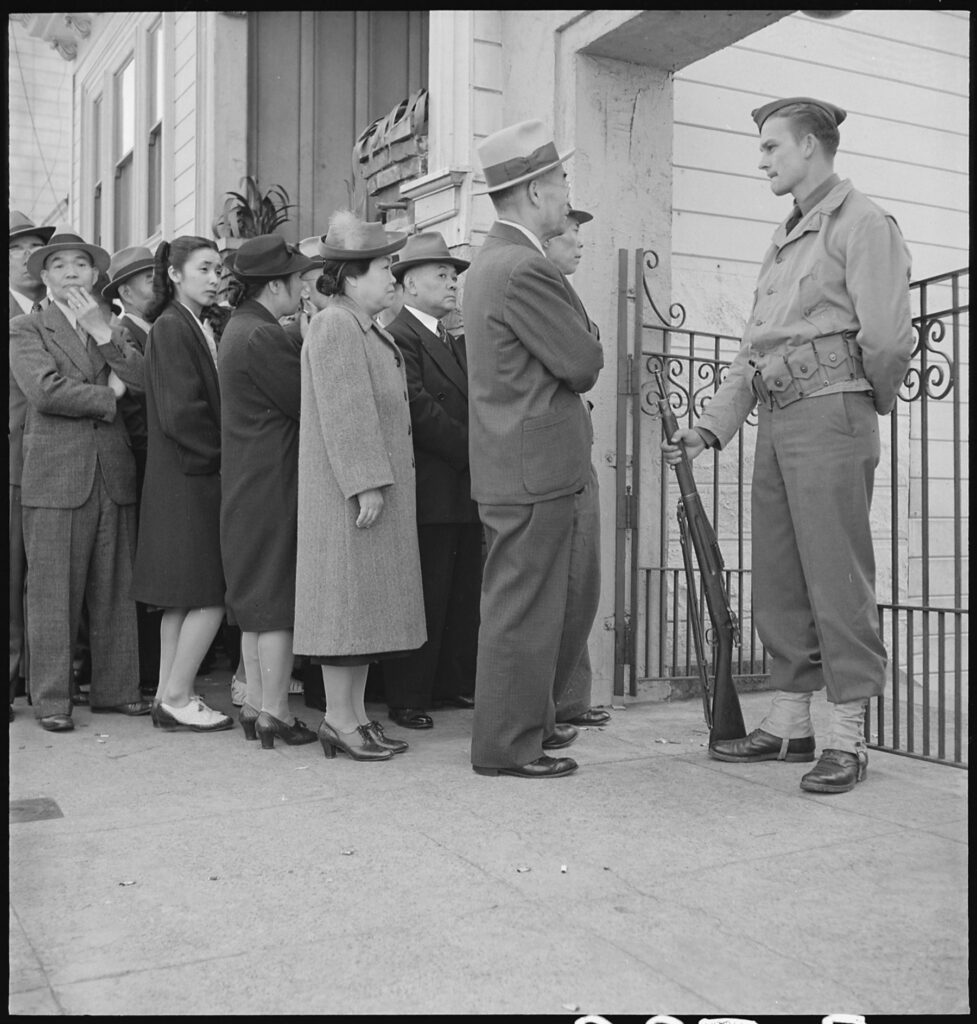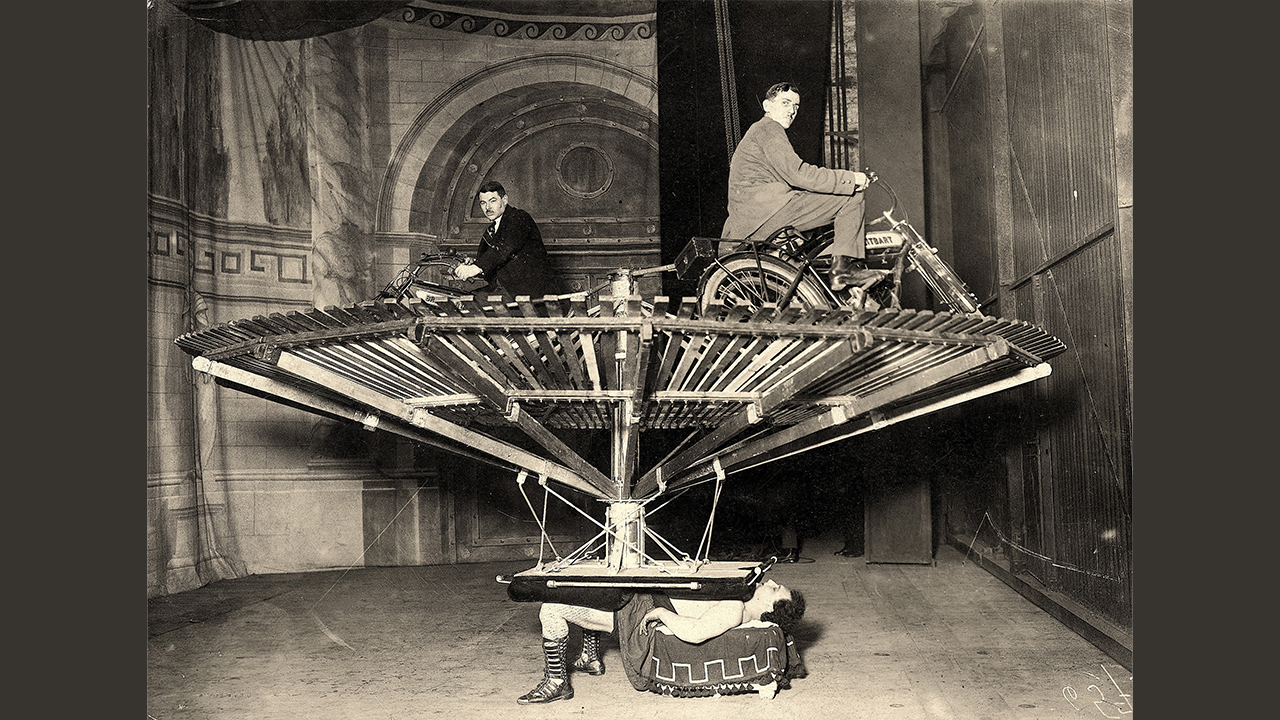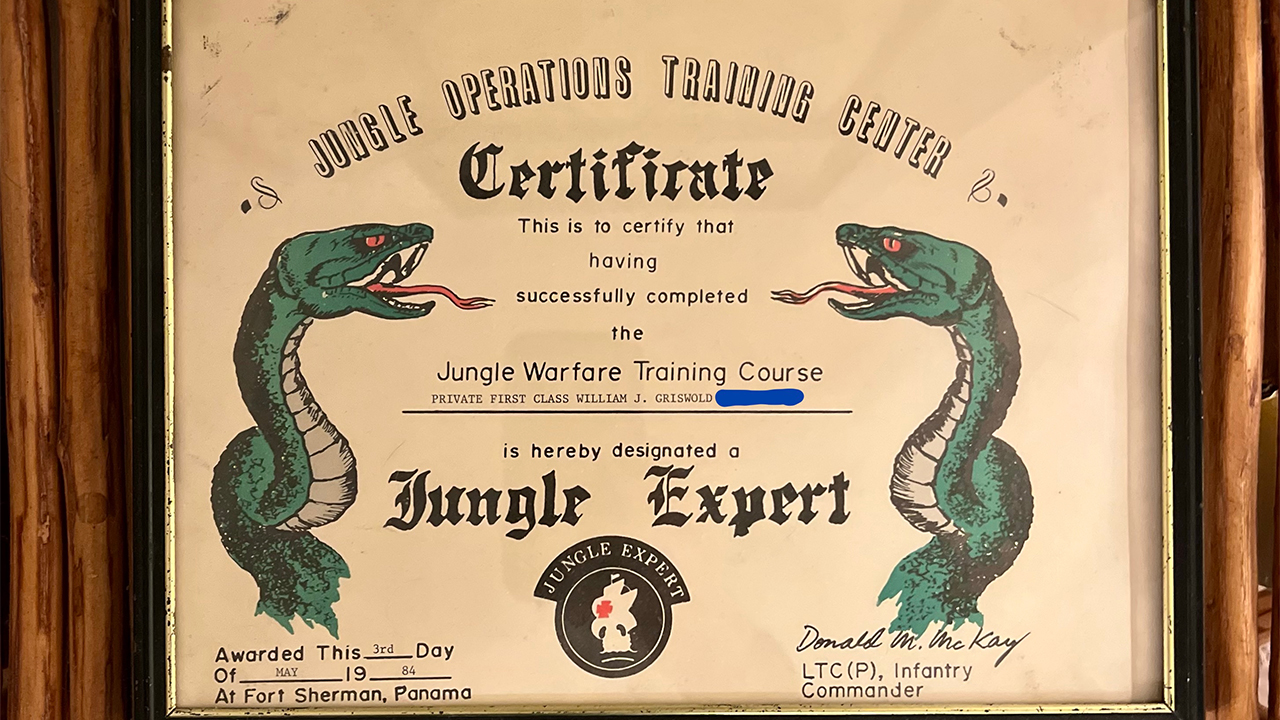The National Archives Deletes Our Problematic Past
November 12, 2024

I used to read about regimes in other countries where anything unfavorable to those in power was erased, burned, rewritten. The Chinese Communist Party, which pronounced any negative events or criticism “historical nihilism.” Joseph Stalin, who rewrote Russian history before he began his purges. Afghanistan, which plucked forty years of the country’s life out of its textbooks.
How on earth did people survive under such conditions, I wondered, sure that I would never have to.
The intensity of this country’s political polarization did surprise me, with its consequent separation of media into right and left. My version of “make America great again” was a wistful nostalgia for shared media. The country needed an avuncular Walter Cronkite everyone could trust, or cheerfully yell back at, every evening. Still, we were all capable of finding news on “the other side.” Far more ominous are the subtler attempts at appeasement. Now U.S. Americans are the ones erasing and self-censoring, lest we distress our audience, or our customers, or the powerbrokers.
The Washington Post’s refusal to endorse was a jolt, a reminder of how owned the mainstream media are. But the recent erasures by the Biden-appointed head of the National Archives frighten me far more. Colleen Shogan bears the title Archivist of the United States. Her mandate is to make sure our national history is recorded, preserved, accessible, and exhibited, so that future generations can learn from it. But she has chosen to delete important chunks of that national history because they are confrontational, negative, or disturbing.
In the blitz of election coverage, I missed this report; maybe you did too. But one bright spot? The news broke in the increasingly right-leaning, Rupert Murdoch-owned Wall Street Journal, whose reporters interviewed nearly a dozen former and current National Archives museum staffers and reviewed internal documents. They found that Shogan and her top aides ordered a rearrangement of exhibits to placate Republican legislators and visitors, who “shouldn’t feel confronted,” as a senior official told museum employees.
Six senior staffers have resigned; one filed a federal whistleblower complaint alleging censorship.
This is a key time for the National Archives: its museum is freshening up for 2026, when the nation will celebrate the 250th anniversary of the Declaration of Independence. In its honor, permanent exhibit galleries are being redesigned. The goal is “to expand our storytelling and our ability to share our holdings with our visitors so that all Americans can find their stories reflected in our spaces,” a spokesperson from the National Archives told Hyperallergic. “Necessary curatorial decisions must always be made carefully.”
Those “necessary curatorial decisions” have included deleting references to Indigenous land displacement (what we used to call stealing tribal land). “After reviewing plans for an exhibit about the nation’s Westward expansion, Shogan reportedly asked one staffer, Why is it so much about Indians?” Treaties ceding tribal land to the U.S. government were cut from the exhibit.

Dorothea Lange’s photographs of Japanese-American concentration camps were also removed; the images were deemed too negative and controversial. References to the camps were deleted from educational materials.
A photograph of Martin Luther King Jr. in a Step into History photo booth was switched out for a photograph of President Richard M. Nixon meeting Elvis Presley; someone on Shogan’s team suggested that visitors would not recognize King.
One of Shogan’s senior advisors reportedly told employees that a story about the Holocaust—explaining how public records were used to return assets to Jews—should be ditched. He rolled his eyes about staffers who were “too woke.”
Archives staffers also told The Wall Street Journal that an exhibit highlighting the abolition of slavery and the recognition of women’s right to vote was sharply reduced in size because it cast the Founding Fathers in a negative light by showing what they had gotten wrong. A photo of former First Lady Betty Ford was removed because she was wearing an Equal Rights Amendment pin. Shogan ordered the patent for the birth control pill removed from an exhibit about inventions that changed the world. One of her aides suggested replacing it with “a patent for the bump stock, a device that allows a semiautomatic weapon to operate as a machine gun.”
A museum spokesperson defended Shogan by pointing out that she had added the Nineteenth Amendment and Emancipation Proclamation to the museum rotunda, where original copies of the Declaration of Independence, Constitution and Bill of Rights are already on display. She was not available for interviews but issued a statement on her National Archives blog, calling the WSJ article a “misinformed perspective” with which she strongly disagreed. “As federal employees, we are not here to promote or share our personal interpretation of the records,” she wrote. “That is for others to do. We are here to preserve, protect, and share the records with all Americans.”
The WSJ article closed by mentioning a recent closed-door event at the Archives called ‘Faith in America,’ hosted by Stand Together, a nonprofit founded by libertarian billionaire Charles Koch. Shogan’s husband is Stand Together’s internal communications director. Her welcome remarks emphasized “the importance of using America’s founding documents to teach and inspire.”
But which documents?
This shift was not expected. It was a referral by the National Archives and Records Administration—under its previous leadership—that prompted federal investigators to search Mar-a-Lago for classified documents from Trump’s previous presidency. Two years later, grilling Shogan over her appointment, a worried Missouri Sen. Josh Hawley pronounced her “an extreme partisan.”
She seems to have bent over backwards to prove him wrong.
“I’m not a librarian or an archivist by profession,” Shogan told the Library Journal when she was appointed. “I’m a political scientist.”
I would rather she be sensitive to preservation than sensitive to politics. Too much sensitivity to politics can send the truth into hiding. Especially historical truth, which is already, inevitably, biased because it was recorded by human beings. Deepening the politicization will erase what we need to understand if we are not to repeat our—dare we use the word?—mistakes.
George Orwell said it: “He who controls the past controls the future.”
Read more by Jeannette Cooperman here.





